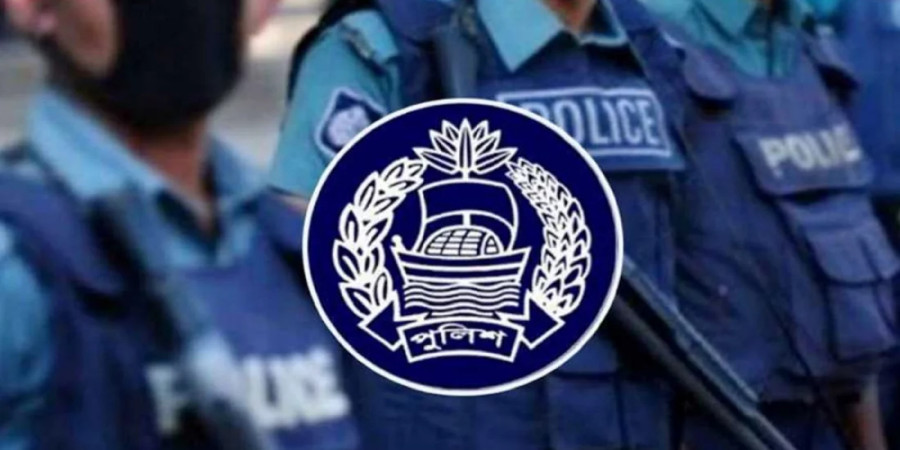
ছবি: Photo: Collected
Despite directives from the top police authorities against operating in civilian attire, law enforcement agencies in Bangladesh continue to conduct operations without uniforms. Allegations have surfaced that many police officers, particularly from various special units, carry out raids in plain clothes without proper identification. This practice persists even after a change in political leadership, raising concerns about the misuse of police power, especially under Section 54 of the Criminal Procedure Code (CrPC).
Recently, the family of a political leader from Cumilla, named Towhidul Islam, accused law enforcement of abducting him from his home with some of the officers reportedly being in civilian clothes. This incident sparked national outrage, with the police acknowledging the matter but maintaining a low profile on the investigation. It has been widely reported that police in plain clothes are often conducting operations and making arrests without any arrest warrant, violating the law and high court guidelines.
For over a decade and a half, allegations have mounted against law enforcement regarding arrests under Section 54, allowing police to detain individuals without a warrant. Though the higher courts and police authorities have repeatedly issued guidelines prohibiting this, many have complained that these orders are ignored. Citizens have raised concerns over the arbitrary nature of these arrests, lack of transparency, and frequent violations of personal rights and dignity. In many cases, those arrested are not informed of the reason for their detention or the identity of the arresting officers, which has added to public fear and uncertainty.
A former Inspector General of Police (IGP) recently commented on the issue, stating that law enforcement agencies like the Criminal Investigation Department (CID), Detective Branch (DB), and Special Branch (SB) are authorized to conduct operations in plain clothes when necessary, such as during covert surveillance or to apprehend criminals. However, he emphasized that the officers must disclose their identity when making an arrest, and the detainee must be brought before a court within 24 hours as per legal requirements. He acknowledged that the misuse of civilian-clad police teams has led to a breakdown in public trust, reiterating the need for the police to operate within the legal framework. The former IGP stressed that proper police attire and visible identification are crucial to avoid exploitation and criminal misconduct under the guise of police operations.
In several documented cases, individuals have been taken into custody by officers in plain clothes, using vehicles that do not belong to the police, making it difficult for the public to track their whereabouts or identify the law enforcement agency responsible. Reports suggest that during past administrations, most disappearances or abductions were carried out by plain-clothed officers, often without providing any explanation or identification. Many of these detainees were never found, and their families still await justice. The rising number of such cases has led to fears of escalating impunity for law enforcement agencies.
Official data from the Commission on Forced Disappearances shows that between January 6, 2009, and August 5, 2024, 1,676 complaints were filed against different government agencies, accusing them of enforced disappearances. Of these, 758 cases were investigated, with 73% of the victims returning alive, while 27% remain missing. Despite repeated calls for reform and justice, the practice of plain-clothed police operations continues unabated.
In a visit to the DB office in January 2024, Home Advisor Lieutenant General (retired) Md. Jahangir Alam Choudhury directed that no arrests should be made by officers in civilian clothes unless they are wearing jackets bearing their unit's official logo. He also insisted that officers must present identification before carrying out any operations. Despite these instructions, plain-clothed operations remain frequent across the country.
One victim, who requested anonymity, shared his ordeal, explaining how two of his relatives were detained by plain-clothed officers in Dhaka’s Motijheel and Badda areas. The police denied knowledge of their whereabouts for most of the day, only to produce them at a police station late at night, where they were subsequently charged under Section 54 and transferred to court custody.
The issue has been repeatedly highlighted by human rights organizations, which cite a 2003 High Court ruling that ordered strict guidelines for Section 54. The ruling emphasized that law enforcement must not misuse the law, and officers must identify themselves when making an arrest, avoiding arbitrary detentions and ensuring detainees are treated with dignity. The High Court ruling was upheld by the Appellate Division in 2016, yet human rights groups claim that these guidelines have not been implemented properly.
The police headquarters, while acknowledging the issue, stated that no law allows regular police stations to form civilian-clad teams. However, some station officers in charge (OC) form such teams to patrol their jurisdictions, primarily at night, under the pretext of crime prevention. These teams often act outside their legal boundaries, engaging in activities that include collecting bribes and unlawfully detaining individuals.
A senior officer at the police headquarters admitted that no member of the police has the authority to conduct an operation in plain clothes without identifying themselves or wearing their designated unit’s logo jacket. He reiterated that the police leadership is closely monitoring the situation, warning that any officer found violating these directives would face legal action.
Referring to the incident in Cumilla, where Towhidul Islam was reportedly abducted by plain-clothed individuals, the officer confirmed that an investigation is ongoing. The police have denied involvement, and authorities are looking into whether other government agencies may have been responsible.
Despite a change in political leadership, the use of civilian-clad police operations has not entirely ceased. The police headquarters stated that they are working to address the issue and are committed to ensuring that law enforcement officers adhere to the legal framework when conducting any operation.
repoter






